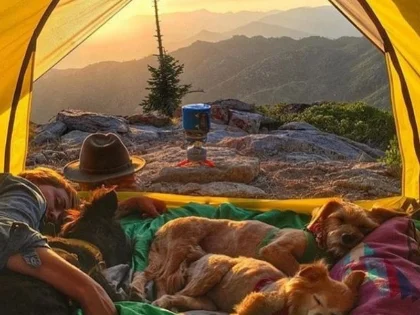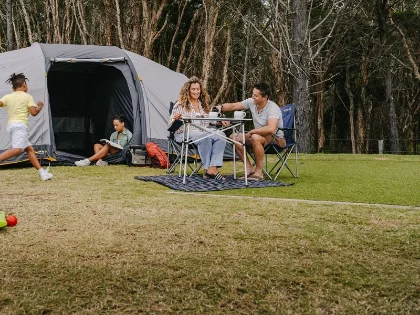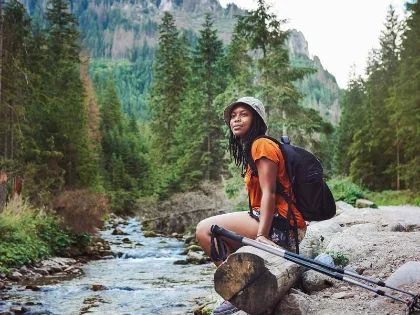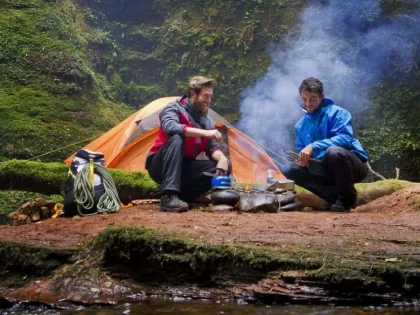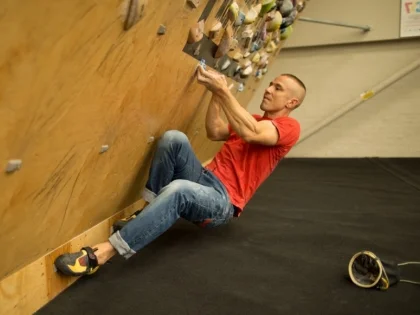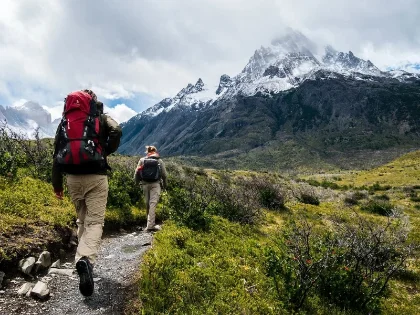How Do Beginners Start Camping?
One of the finest ways to appreciate the outdoors and get back to nature is to go camping. It also teaches you to provide for basic necessities like water, fire, and shelter by depending on yourself and your teammates.
Here are some pointers to get new campers going: Start with local travel to cut down on planning and provide flexibility with your schedule. To create a layer of comfort between you and the ground, think about incorporating a sleeping pad into your arrangement.
Camping in the backyard
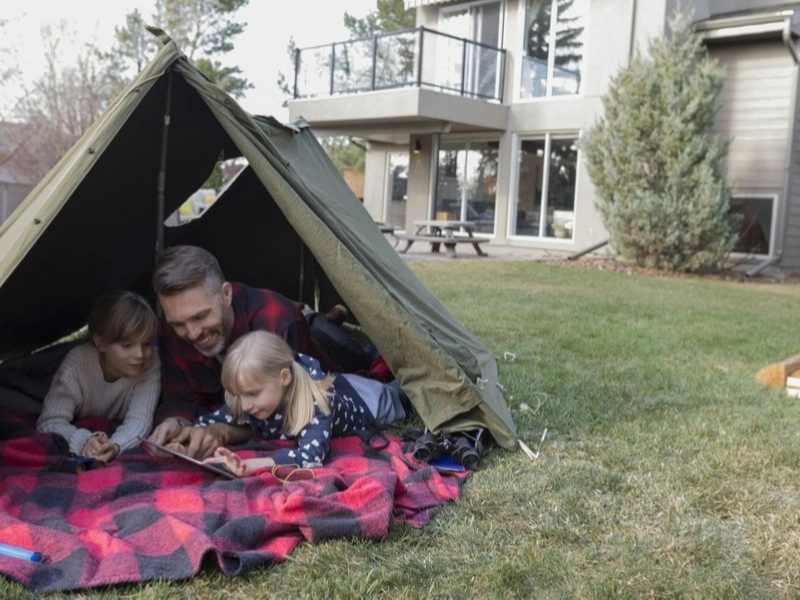
Beginner campers will love backyard camping because it's enjoyable and doesn't require leaving the comforts of home. It might also serve as a useful drill for upcoming camping excursions.
Novice tent-builders can use their garden, porch, or balcony. They can make do with blankets or even sleeping bags if they don't have a tent. Some even construct sleeping quarters on trampolines or in children's outdoor play forts!
For novice campers, it is crucial to bring along a camping kit in order to maximize authenticity. A checklist makes it easier for novices to remember what they need and prevents last-minute scurrying. For cooking, it is advised that novices bring a two-burner propane camp stove. A torch, headlamp, lantern, additional blankets, and water for bathing and drinking should also be brought. Beginners should also avoid using technology so they can disconnect and enjoy the outdoors.
Camping in a car
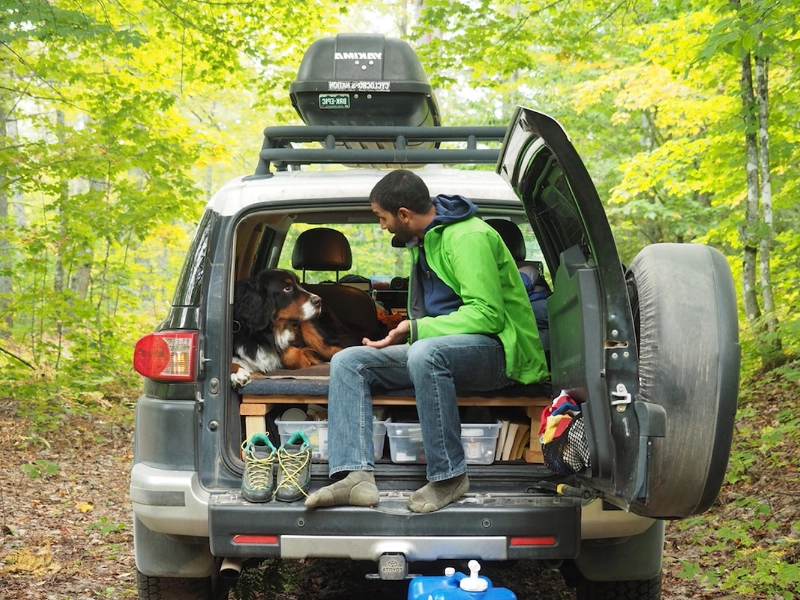
Enjoying the outdoors while sleeping outside without the additional luggage of hiking is possible when you car camp. With the luxury of their car close by, novice campers may settle in and learn how to cook over a bonfire.
When it comes to vehicle camping, preparation is crucial. In order to be better equipped for unforeseen events, novices can organize campgrounds and road services along their route using tools like Roadtrippers and Campendium.
For your first few camping excursions, don't forget to include a pillow, earplugs, and eye masks. These luxuries enhance comfort and help your body acclimate to sleeping on the ground, all while encouraging a better night's sleep. To enjoy yourself while at camp, you might also want to pack a deck of cards and a hammock similar to this Eagles Nest Outfitters DoubleNest Hammock. To keep your gadgets charged, don't forget to bring along a power bank. Petzl, Goal Zero, and Anker are all excellent choices.
RV camping or glamping
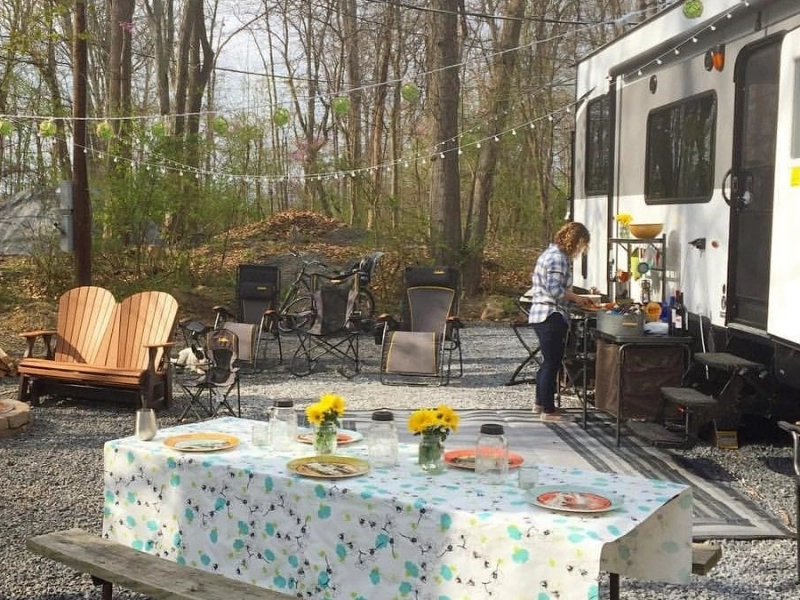
Glamping is an option at many campgrounds, where guests can stay in tents, teepees, or other unusual lodgings that go above and beyond basic camping. Although these experiences tend to cost a little more than conventional camping, they can still be an inexpensive introduction to this kind of outdoor leisure for first-timers.
It's crucial to be ready for mishaps and injuries when camping; therefore, I advise first-time campers to utilize an Adventure Medical Kit designed for outdoor use. The materials in this kit can be used to treat typical hiking wounds and allergic reactions, including stings and bites from insects.
For those who are new to camping, it's also critical to comprehend proper campsite behavior. This includes making sure your tent is set up correctly, containing food and trash in the campgrounds, and not upsetting the local wildlife. Finally, a novice should only make a fire in a designated fire pit and should hone their fire-building techniques in their backyard before visiting a campground, where it can be harder to acquire wood suitable for a fire.
Camping in the backcountry

Camping in the backcountry is among the most fulfilling outdoor experiences. Stowing all of your belongings into a backpack, trekking into the bush, carrying your house on your back, and camping out under the stars has a certain natural and thrilling quality.
Before embarking on an overnight trek, novice trekkers should practice setting up their tent and cooking over a fire. To prevent leaving a social trail, make sure you adhere to the Leave No Trace philosophy and take a different path to and from camp.
When wilderness camping, having a trip plan is crucial since it keeps you organized and lets someone know where you are in case of an emergency. Additionally, since GPS units can malfunction and cell service is sometimes spotty in isolated locations, mastering map-reading and compass navigation is a crucial ability for wilderness camping. Lastly, traveling with friends or other campers is a great option because they can assist with sharing the weight of your pack and offer safety support in the event of an emergency.
